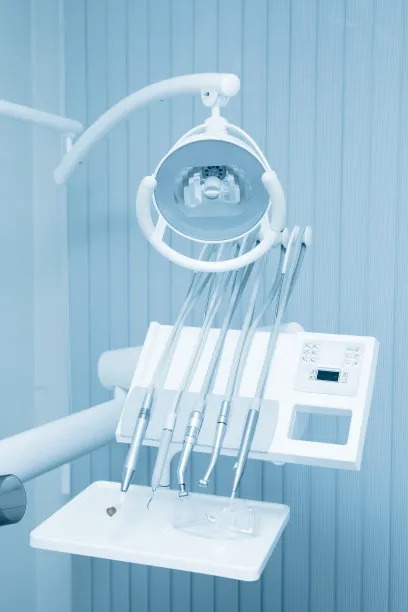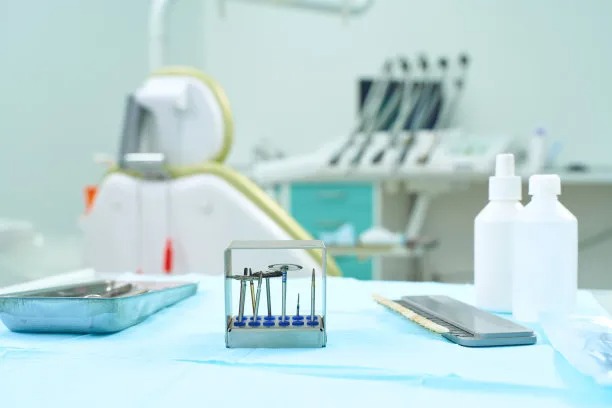Summary: Dental fillings are a common procedure aimed at restoring teeth damaged by decay or trauma. However, understanding the essential guidelines before and after the procedure can significantly impact your oral health. This article will discuss four key areas: preparation for the filling, post-procedure care, dietary considerations, and the importance of follow-up visits. By adhering to these guidelines, patients can enhance their recovery and maintain optimal dental health.
1. Preparation for Your Dental Filling

Before undergoing a dental filling, a thorough consultation with your dentist is crucial. During this visit, you should discuss your dental history, any medications you are taking, or allergies you might have. This information will help your dentist to plan the best approach for the filling, ensuring a more successful outcome.
Another essential aspect of preparation is arriving at the clinic with a clear mind and no distractions. If you feel anxious about the procedure, consider discussing anxiety-relief options with your dentist. They may offer sedation methods that can help you relax during the treatment.
Additionally, its advisable to arrange for someone to accompany you if sedation is used. After the procedure, you might experience some numbness or drowsiness, making it difficult to drive or engage actively in your daily responsibilities.
2. Post-Procedure Care for Optimal Healing
Your post-procedure care plays a pivotal role in the healing process. Initially, it鈥檚 important to avoid eating until the numbness wears off to prevent accidental biting of your tongue or cheek. Cold compresses can be utilized to reduce swelling and discomfort during the first few hours.
In the following days, maintain an excellent oral hygiene routine. Gently brush around the filling site to avoid dislodging it, but take care not to be too aggressive, as the area may still be sensitive. Rinsing with warm salt water can also aid in keeping the area clean while promoting healing.
Moreover, paying attention to any unusual sensations, such as prolonged pain or sensitivity, is essential. If these symptoms occur, contacting your dentist is necessary, as they might indicate an issue that requires further attention.
3. Dietary Considerations After the Procedure
Your diet post-filling has a significant impact on how your recovery unfolds. For the first 24 hours, its advisable to stick to soft foods that require minimal chewing, such as yogurt, mashed potatoes, or smoothies. These options help avoid undue stress on the newly filled tooth.
Steering clear of hot or extremely cold foods can also aid in reducing sensitivity. Temperature extremes can cause discomfort in freshly filled teeth, which may still be adjusting. Remember to avoid sticky or hard foods that might dislodge or damage the filling.
As time passes, gradually reintroducing solid foods is important; however, being mindful of the filling鈥檚 integrity is crucial. Cutting food into smaller pieces can assist in managing any discomfort, ensuring the filled tooth is not subjected to excessive strain.
4. Importance of Follow-Up Visits
After your filling procedure, scheduling a follow-up visit is vital to ensure everything is healing correctly. Your dentist will check the filling and surrounding areas for any signs of complications or improper alignment. This step is vital in maintaining the longevity of the filling.
Regular dental check-ups, ideally every six months, serve as preventative care and can help catch any future issues early. During these visits, your dentist can evaluate your overall oral health and make recommendations tailored to your needs.
Additionally, fostering a healthy relationship with your dental care provider encourages openness about any concerns. Their expertise can guide you through maintaining optimal oral health, keeping your fillings and natural teeth in good condition for years to come.
Summary:
In conclusion, understanding and implementing essential guidelines before and after your dental filling can significantly affect your oral health. Preparing adequately, caring for your mouth afterward, being mindful of your diet, and attending follow-up appointments all contribute to a successful recovery and lasting dental health.
This article is compiled by Vickong Dental and the content is for reference only.
Vickong Dental
Vickong Dental is a large medical group established in Hong Kong in 2008 by professors from well-known medical universities in Guangdong and Hong Kong, as well as medical doctors from key national '985' universities (including Master's supervisors and senior professors). The chain of branches brings together expert dentists with PhDs and Master's degrees from Hong Kong and Mainland China, committed to providing high-quality dental treatment.
"Vickong Dental Practices the University Motto of 'Healing and Serving Society,' with a Stable Operation for Sixteen Years. It Has Been honored with Hong Kong Enterprise Leaders's Choice,' and is a Global Trusted Implant Center for the Nobel Implant System. Recommended by Hong Kong Metro Broadcast and Guangdong Television, it Serves Customers from Over Thirty Countries and Regions, Gaining the Trust and Favor of Citizens from the Guangdong-Hong Kong-Macau Greater Bay Area and Surrounding Cities.

Thousands of customers' unanimous praise
The most recognized and highly recommended dental service by customers in the Guangdong-Hong Kong-Macau Greater Bay Area
We Ensure You Receive Detailed Care and Attention Here
Hong Kong standards, Shenzhen prices, Your Trusted English-speaking dentists

Vickong Dental Medical-Grade Instrument Disinfection Process
Vickong Dental Medical-Grade Instrument Disinfection Process

Vickong Dental Chain: A Warm and Comfortable Environment for Treatment






Appointment Hours

Q&A
Why choose Vickong Dental?
Vickong Dental practices the university motto 「Medicine to Benefit Society」, with each branch bringing together highly qualified dentists with doctoral and master’s degrees from Hong Kong and the Mainland, and has maintained seventeen years of steady operation。Recipient of 「2024 Hong Kong Enterprise Leaders Brand」, 「2025 Hong Kong Enterprise Leaders Brand」, a Nobel Biocare Global Trusted Implant Center, and a brand recommended by Metro Radio Hong Kong and Guangdong TV。
To date, we have served customers from more than thirty countries and regions,earning exceptionally high word-of-mouth recognition and trusted recommendations from residents across the Guangdong-Hong Kong-Macao Greater Bay Area and surrounding cities
We have eight major branches in Zhuhai、Shenzhen,and a consultation and service assurance center in Hong Kong,so you can book a free consultation at any time for any questions,which is very reassuring.
If I do not accept the quotation after the CT scan, will I be charged??
No! As long as the actual treatment has not started, you will not be charged any fees.
Will there be any additional charges during the treatment process?
No, there won’t be any additional charges. Before treatment begins, we will clearly explain the treatment plan and its corresponding fees. Only after the patient agrees and signs the consent form will we proceed with the dental service.
Can I pay in Hong Kong dollars?
Yes. Vickong Dental accepts payment in Hong Kong dollars. The amount will be converted based on the exchange rate of the day, and the applicable rate will be clearly communicated to you in advance.
Can I reschedule my appointment at any time?
Yes. Please contact us via **WeChat** or **WhatsApp** as early as possible, providing your original appointment time and details, along with your preferred new date and time slot for rescheduling.













